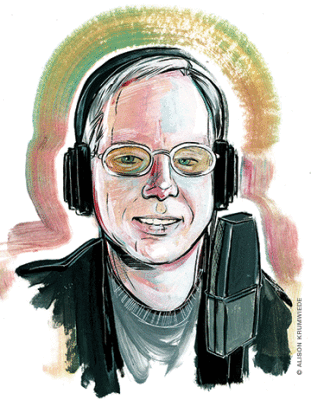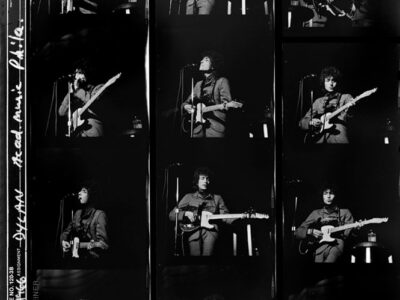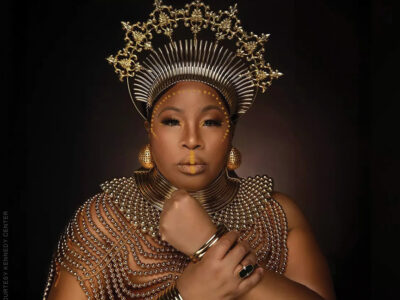The String Band Theory of Urban Economics

When Nick Spitzer C’72, the silver-tongued producer of public radio’s American Routes and professor of American studies and anthropology at Tulane, came back to campus a few months ago, the music and ideas bopped and shimmied through Meyerson Hall. Having discovered his musical bliss in Philadelphia during the late 1960s and early ’70s as a Penn student and DJ/program director for WXPN [“Digging Routes,” Mar/Apr 2009], Spitzer has long been a champion of the city’s musical heritage—and of the vital role that the “vernacular arts and humanities” can play in all cities. (He’d like to see that phrase become the new name of a resurrected folklore department at Penn, but that’s another story.) His presentation—“City Soundscapes: Music, Words, and Identities in Urban America”—was staged by the Institute for Urban Research and sponsored by the provost’s Year of Sound series and the urban-studies program.
Spitzer punctuated his observations with Routes clips (ranging from McCoy Tyner to assorted Mummers to Bobby Rydell) as well as live music by local talent: saxophonists Jimmy Heath and Sam Reed, doo-woppers Frankie and the Fashions, the Budesa Brothers with Lucky Thompson, and the mother-daughter klezmer duo of Elaine Hoffman Watts and Susan Watts. He also snapped off his share of tasty verbal licks.
We have something in New Orleans that’s extremely powerful, and that’s our vernacular arts and humanities. Let’s call them that now. But they can also be called jazz, or rhythm and blues, or soul, or bounce music like the Indians [play] at Carnival. Do I have to go on? I know you know this because New Orleans is famous for this. And it’s still happening. It’s not a revival, though there are revivals. It’s continuous culture—and it saved our city. It brought people back.
Everyone said, “Well, the infrastructure’s so terrible there.” Well, no native New Orleanian, and no one who ever came to live there—whether it was [William] Faulkner or Tennessee Williams or just the latest bohemian string band playing on Bourbon Street—none of them came for the infrastructure …
All the new thinking in the cultural economy for urban planners sort of surrounds the idea of folklore. The urban planners all tell me now, “We really need informal culture as much as the formal.” Yes, we do. We live by the informal culture, and we put up with the formal. We work through the formal but we need the informal. Call it what you want, but take care of it. —S.H.




